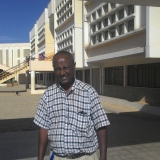Natural resources, agriculture and human activities are highly interrelated in most developing countries in general and Ethiopia in particular. Land clearing for agriculture, increase in demand for fuel wood and construction material, illegal settlement within forests, logging and the expansion of illegal trade have resulted in the deterioration of forest resources, reduction of biodiversity, incidences of soil erosion and land degradation in the country. These will increase the demand for family labor to provide essential resources such as fuel wood, fodder, and water for humans and livestock.
Increasing natural resource scarcity, i.e., deterioration of forest resources and fuel scarcity, in many poor countries has resulted in long hours of work being spent by women and children in fuel collection activities. Therefore, natural resource degradation has decreased the welfare of rural households in many ways. For example, since labor is an important input in the production of various crops in rural Ethiopia, a reallocation of labor away from agriculture to other activities will reduce agricultural production and productivities especially in the environmentally degraded regions. Moreover, through increasing the hours allocated to this work (increasing the burden on children) natural resource scarcity decreases the likelihood that they will attend schools or their performance at school. However, rigorous empirical evidences on the link between scarcity of natural resources and productive activities and child schooling are almost non-existent in Africa in general and Ethiopia in particular. The available limited studies focus on Asia, specifically Nepal. Therefore, the main objective of this research project is to analyze the nexus between natural resources degradation and household welfare (through its effect on agriculture and schooling) by taking case studies from Ethiopia. Moreover, the study will try to look at the link between resource scarcity and labor allocation separately for different groups of household members.
The necessary data for the empirical analysis will be obtained from the survey conducted in 2009 from a sample of 600 rural households. The survey has information on community level data and spatial data which will be used in the empirical analysis of this paper. Alternatively we may also use panel data that has been collected by the EfD center in Ethiopia in collaboration with Addis Ababa University and Gothenburg University as well as other institutions. We will employ theoretical as well as econometric models to address the objectives of the paper.
We expect that the outcome of this research project will show the interconnection between labor allocation, natural resource degradation, agriculture and children schooling which will help to identify the extent to which resource degradation affects welfare of households. It helps policy makers understand the extent of the problem of natural resources degradation in resource allocation behavior of farm households as well as child education in rural Ethiopia and its implications for policy making.



